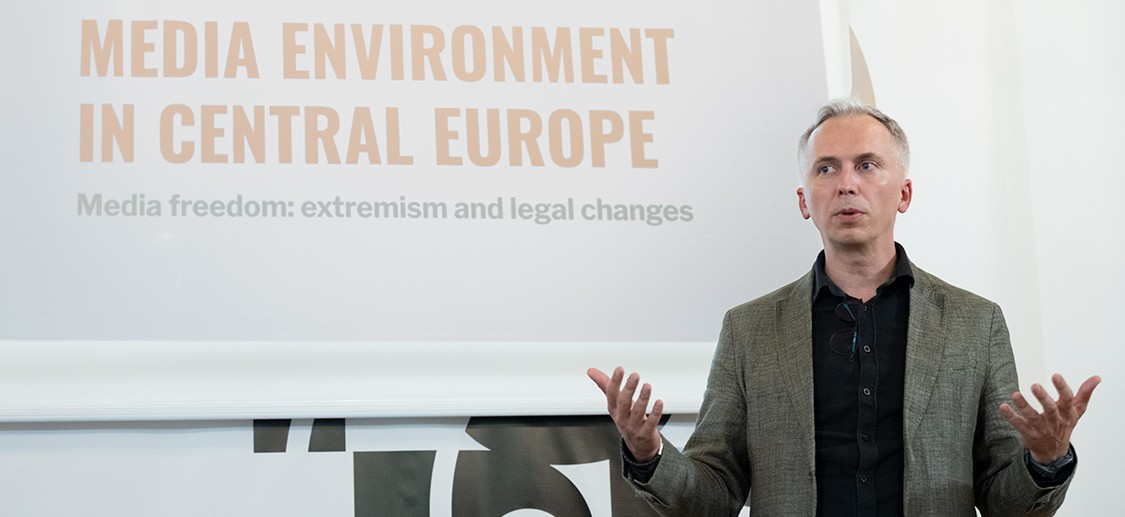
Beata Balgová: Visegrad – Why do Autocrats Deny the Watchdog Role of Media?
On the third day of Visegrad Summer School, we kicked off with a thought-provoking lecture by Beata Balgová, Editor-in-Chief of SME. Making her debut at the Summer School, Balgová delved into the indispensable role of media in upholding democratic accountability and the mulitfaceted strategies autocrats employ to undermine this role. She highlighted the struggle to engage younger audiences with traditional media and emphasized the importance of investigative journalism, citing landmark investigations like Watergate and Panama Papers.
Balgová also warned about the tactics used by governments to weaken media, such as targeting supportive groups, leveraging media ownership, and orchestrating hate campaigns against journalists, particularly women. She shared her own experiences with hate messages and threats, noting the emotional toll it takes on fellow female journalists.
Attila Mong: Journalists’ Killings, Surveillance and Smear Campaigns – Is Europe Still a Safe Haven for Journalists?
Next, we had an enlightening online session with Attila Mong, a Hungarian freelance journalist and the Europe Representative for the Committee to Protect Journalists (CPJ). Mong, who relocated to Berlin after Orban's rise to power, discussed whether Europe remains a safe haven for journalists. He outlined CPJ's mission to protect and support journalists worldwide, focusing on digital and physical security, research, advocacy, and emergency assistance.
Mong pointed out the increasing dangers faced by journalists, including legal threats, smear campaigns, online attacks, and physical violence, particularly during protests.
He stressed the need for robust journalism to hold power accountable and criticized populist leaders for valuing media only when reports are favorable.
Wojciech Przybylski: Visegrad – PL Iformation Sovereignty – Digital and Policy Challenges to the Future of Journalism
In the afternoon, Wojciech Przybylski, Editor-in-Chief of Visegrad Insight, delivered a compelling presentation on the future of journalism in Central Europe. He discussed media freedom, extremism, and legal changes, emphasizing the importance of understanding regional dynamics.
Przybylski introduced the concept of information sovereignty, linking it to democratic resilience and critical thinking. He detailed the sharp decline in media freedom in Hungary and Poland and the varying degrees of media control in Slovakia and the Czech Republic.
Przybylski highlighted the disinformation age and the need for factual, engaging narrativesto dominate public discourse, frther mentioning the EU's new Media Freedom Act and the Digital Services Act as steps towards protecting media impartiality and independence.
Przybylski presented four scenarios for the future of information sovereignty: centralization of media, disruptive decentralization, growth of a fragmented sphere, and collapse of the advertising market. Each scenario presents varying challenges and with different potential outcomes for media independence and democracy.
He concluded by emphasizing the importance of the business model in media, noting that funding sources and diversity are crucial for maintaining journalistic integrity. Przybylski described journalism as a noble form of politics and the fourth pillar of democratic power, vital for enabling people to control their destiny.













